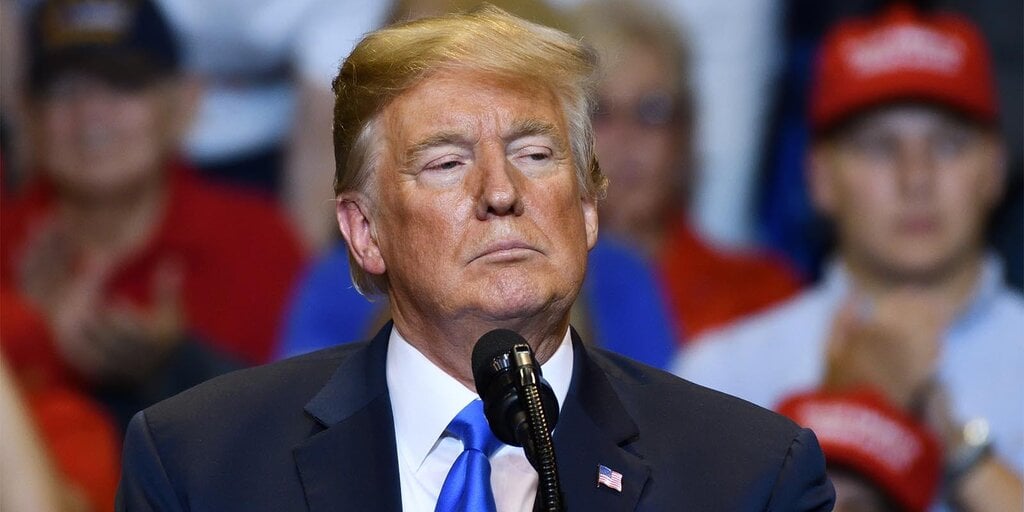We do the research, you get the alpha!
Get exclusive reports and access to key insights on airdrops, NFTs, and more! Subscribe now to Alpha Reports and up your game!
Donald Trump’s presidential campaign has been recently boosted by crypto donations—but from the wealthy few, not the on-chain many.
New filings reveal that of the roughly $3.3 million worth of crypto donated to Trump’s campaign between when it began accepting on-chain payment in mid-May and the end of June, only a tiny fraction—just 0.3% of those funds—came from ordinary donors who were not high-ranking executives in the crypto industry.
The vast majority of Trump’s crypto donations came from prominent crypto executives.
According to campaign filings, Gemini co-founders Tyler and Cameron Winklevoss collectively donated some $2.02 million worth of Bitcoin to the presumptive Republican nominee; Kraken co-founder Jesse Powell gave $845,000 worth of Ethereum; and Stuart Alderoty, Ripple’s Chief Legal Officer, gifted $300,000 worth of XRP.
Other donations from crypto executives to Trump last quarter included those from BitGo CEO Michael Belshe ($50,000 worth of BTC) and Messari CEO Ryan Selkis ($50,000 worth of USDC).
Some ordinary crypto users numbered among Trump’s donors. The owner of a small chain of pizza shops in Michigan donated $943 worth of Bitcoin to the former president’s campaign, for instance. A Marine Corps officer in California gave $676 worth of BTC.
But such instances have been few and far between. Collectively, it appears that less than 15 of Trump’s crypto donors are not founders of or executives at blockchain-focused firms. The total sum of donations from these non-industry sources equals about $10,000.
Those figures paint somewhat of a different picture of the 2024 race than one currently floating around crypto circles—namely, that millions of crypto-focused voters are outraged at President Biden’s stance on digital assets, and are poised to decide the election by voting with the issue top of mind.
To be clear, the demographics of political donations do not necessarily predict voting outcomes. Further, U.S. tax policy might push crypto holders to donate in fiat money, as political donations are not tax-deductible, meaning crypto donations to political campaigns are thus subject to capital gains taxes.
Regardless, the Trump campaign’s initial crypto haul makes clear something that’s been known for some time: While the digital asset industry’s hold on voters is still up for debate, the depths of its pockets is not.
Last month, a pro-crypto political fund became the third-best-funded super PAC in the country, after only ActBlue and WinRed, the primary payment processors for Democrats and Republicans, respectively. The political action committee, Fairshake, has been funded almost entirely by the leadership of top American crypto firms including Coinbase, Ripple, and Andreessen Horowitz.
Edited by Andrew Hayward
Daily Debrief Newsletter
Start every day with the top news stories right now, plus original features, a podcast, videos and more.
This news is republished from another source. You can check the original article here







